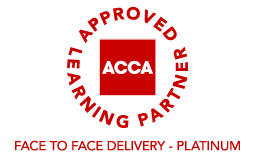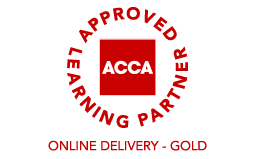An internal auditor is a company employee tasked with independently and objectively evaluating their organization’s risk management, control, and governance processes. They systematically gather information on and analyze their organization’s financial, operations and corporate governance processes, uncovering non-compliance issues, erroneous practices and fraudulent activities that put the company at risk or compromise its efficiency, productivity and profitability.
Wondering how to become an internal auditor? Becoming a Certified International Auditor (CIA) is the best way, so enrolling in CIA training in Dubai is essential.
In this post, we’ll talk about the steps you need to take to become an internal auditor. Before that, however, let’s address the question you are probably asking yourself right now: “Why should I become an internal auditor?”
Why Become an Internal Auditor
The value you can bring to the table as an internal auditor and the impact you can have on an organization may be the primary reasons you might want to consider a career in internal auditing. An internal auditor exposes actual and potential problems so they can be rectified or prevented and mitigated.
In the course of your training and career as an internal auditor, you’ll also gain a profound understanding of how a business operates. Your job involves evaluating and analyzing every facet of your company’s financial state, operations and governance, so it’s natural to need and want to learn everything about these integral business elements.
Finally, internal auditors are generally well compensated. An entry-level internal auditor in the United States has a median annual salary of $49,750. The pay increases as one climbs up the ranks, with senior-level internal auditors in the United States earning a median salary of $93,500 and the top 25% making more than $110,000 per year.
This last point also answers the question, “Why should I become an internal auditor certified by the Institute of Internal Auditors (IIA)?”
Put another way, “Why do I want to become a Certified Internal Auditor?”
According to the IIA, internal auditors witha CIA designation make $38,000 more than non-CIAs annually. CIAs are also more competitive, as 70% of chief audit executives prefer to hire CIAs.
Now that that’s out of the way, let’s focus on the matter at hand and discuss the steps you need to take to become an internal auditor, particularly an IAA-certified one.
If you’re wondering, “what qualifications do i need to be an internal auditor?” The following section will answer that as well since it also touches on eligibility requirements.
Steps on How to Become an Internal Auditor
Follow these steps on your path to becoming an internal auditor.
-
Earn at least the minimum required education.
You must meet specific educational requirements to enter the CIA program. If you can, get a bachelor’s degree. It doesn’t have to be a business or accounting course; any undergraduate degree program will do. A master’s degree is even better.
You can also qualify if you are an active:
- Internal Audit Practitioner (IAP)
-
- Student in your final year in college
- Student in an IIA internal audit education partner school
A high school diploma, an associate’s degree, a general certificate of education (GCE), an advanced level (A-level), or a similar qualification (e.g., Business and Technology Education Council or BTEC Nationals or higher) may also suffice as long as you have at least five years of internal audit or relevant experience to go with it.
-
Earn the minimum required internal audit experience for your educational level.
The education credentials discussed above are program entry requirements. You need to have them to enter the program.
Work experience in internal audit is an exit requirement. You must meet the minimum work experience requirement before you can get your CIA certificate.
Depending on your educational attainment, you may need to complete the following years of experience in internal audit or their equivalent (risk management, quality assurance, compliance, internal control, external audit, and other audit and assessment disciplines).
- One year if you have a master’s or higher degree
- Two years if you have a bachelor’s degree. This requirement applies if you enter the program while in university. Even if you pass all the exams and fulfill the work experience requirement, you will get the CIA designation only after earning your degree.
- Five years if you have an active Internal Audit Practitioner designation. Only paid internal audit or relevant work experience qualifies. You may also earn your work experience before you enter the CIA program.
Completing your work experience (or most of the required years) prior to CIA program application is recommended, especially if you are an IAP and must earn five years of internal audit or relevant work experience to get your CIA designation.
You only have three years (i.e., the program eligibility period) to pass all exams and complete all exit requirements.
Note: Those who enter the program on the strength of their five years or more experience (say, those who have a high school diploma, an associate’s degree, a GCE, an A-level, or a similar qualification) do not need to fulfill additional years of experience to exit the program.
-
Enter the CIA program.
Once you meet the educational (entry) requirements and have completed most of your relevant work experience (exit) requirements, you can apply for the CIA program. This entails creating a profile in the IIA candidate portal and submitting all required supporting documents.
Again, you have three years to satisfy all program requirements, including passing three CIA exams. You’ll most likely need to enroll in a CIA course to ensure you can pass all the exams.
If you satisfy all program requirements within the three-year program eligibility period, you will get your certification and become a Certified Internal Auditor.
By the way, Association of Chartered Certified Accountants (ACCA) members have a fast track to CIA certification. Once an ACCA member has entered the CIA program, they can take one of two pathways.
- Pathway 1: ACCA members can take the CIA Challenge Exam. They need to take only one exam to obtain the CIA designation.
- Pathway 2: ACCA members may also choose to be exempted from the CIA program’s educational and professional experience requirements. In this case, they must take all three CIA exams.
Insider Tip: Enroll in ACCA training in Dubai, become an ACCA member, and then take the fast track to a CIA designation to become both an ACCA professional and a CIA.
Become a Certified Internal Auditor
The most direct path to becoming a full-fledged internal auditor is to actually work in internal audit.
However, if your concern is how to become a good internal auditor, consider earning the Certified Internal Auditor designation. Better yet, become an ACCA professional and follow it with a Certified Internal Auditor designation.
Phoenix FT is a financial training institute in Dubai, and the leading provider of accountancy and finance training in the Middle East and Northern Africa (MENA) region.
Check out our jumpstart program to expedite your career in accountancy and finance.



